In "Orlando," Virginia Woolf crafts a phantasmagorical narrative that transcends conventional notions of gender and time. This groundbreaking novel traverses three centuries, following its protagonist, Orlando, who undergoes a miraculous transformation from male to female. Woolf's distinctive stream-of-consciousness style complements the richly imaginative plot, allowing readers to explore themes of identity, fluidity, and the constraints of societal norms. Set against the backdrop of English history, the text wittily critiques patriarchal values and idealizes the liberating potential of artistic expression. Virginia Woolf, a central figure of the modernist literary movement, infused her own experiences and feminist ideologies into her innovative works. Her intricate appreciation of the fluidity of gender and identity is likely derived from her own nonconformist life and relationships, as well as her engagement with the experimental ideas circulating among her contemporaries in the Bloomsbury Group. This innovative narrative thus reflects Woolf's profound philosophical inquiries into the nature of existence. "Orlando" invites readers to reconsider the constructs of gender and history in a refreshing and imaginative manner. Highly recommended for those interested in feminist literature, modernist fiction, and the exploration of identity, this novel remains a timeless exploration of human experience, urging readers to embrace the complexities of life beyond rigid definitions.

Ein Zimmer für sich allein
Virginia Woolf
audiobookbook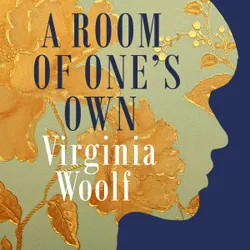
A Room of One's Own
Virginia Woolf
audiobookbook
Orlando
Virginia Woolf
audiobookbook
Die größten Meisterwerke der Weltliteratur : 200 Klassiker die man kennen muss
Fjodor Michailowitsch Dostojewski, Lord Byron, Franz Kafka, Victor Hugo, Giacomo Leopardi, Marcel Proust, Henrik Ibsen, Percy Bysshe Shelley, Charles Dickens, Jane Austen, Mary Shelley, Emily Brontë, Charlotte Brontë, Anne Brontë, William Makepeace Thackeray, Bram Stoker, Henry Fielding, George Eliot, William Shakespeare, D. H. Lawrence, Walt Whitman, Herman Melville, Thomas Wolfe, Virginia Woolf, Joseph Conrad, Sinclair Lewis, Lewis Carrol, Edgar Allan Poe, Edward Bulwer-Lytton, Oscar Wilde, H. G. Wells, Daniel Defoe, James Fenimore Cooper, Lew Wallace, Jonathan Swift, Robert Louis Stevenson, Mark Twain, Walter Scott, Nathaniel Hawthorne, Harriet Beecher Stowe, Laurence Sterne, Frances Hodgson Burnett, Arthur Conan Doyle, Washington Irving, O. Henry, Ambrose Bierce, Alexander Sergejewitsch Puschkin, Michail Lermontow, Iwan Sergejewitsch Turgenew, Leo Tolstoi, Nikolai Gogol, Iwan Gontscharow, Nikolai Leskow, Anton Pawlowitsch Tschechow, Maxim Gorki, François Rabelais, Jean de la Fontaine, Blaise Pascal, Pierre Corneille, Moliere, Pierre Ambroise Choderlos de Laclos, Antoine-François Prévost, Marquis de Sade
book
200 Meisterwerke der Literaturgeschichte : Die größten Klassiker der Weltliteratur
Franz Kafka, Victor Hugo, Fjodor Michailowitsch Dostojewski, Lord Byron, Giacomo Leopardi, Marcel Proust, Henrik Ibsen, Percy Bysshe Shelley, Charles Dickens, Jane Austen, Mary Shelley, Emily Brontë, Charlotte Brontë, Anne Brontë, William Makepeace Thackeray, Bram Stoker, Henry Fielding, George Eliot, William Shakespeare, D. H. Lawrence, Walt Whitman, Herman Melville, Thomas Wolfe, Virginia Woolf, Joseph Conrad, Sinclair Lewis, Lewis Carrol, Edgar Allan Poe, Edward Bulwer-Lytton, Oscar Wilde, H. G. Wells, Daniel Defoe, James Fenimore Cooper, Lew Wallace, Jonathan Swift, Robert Louis Stevenson, Mark Twain, Walter Scott, Nathaniel Hawthorne, Harriet Beecher Stowe, Laurence Sterne, Frances Hodgson Burnett, Arthur Conan Doyle, Wilkie Collins, Edgar Wallace, Jack London, Henry David Thoreau, John Galsworthy, F. Scott Fitzgerald, Rudyard Kipling, G. K. Chesterton, Washington Irvin, O. Henry, Ambrose Bierce, Alexander Sergejewitsch Puschkin, Michail Lermontow, Iwan Sergejewitsch Turgenew, Leo Tolstoi, Nikolai Gogol, Iwan Gontscharow, Nikolai Leskow, Anton Pawlowitsch Tschechow, Maxim Gorki, François Rabelais, Jean de la Fontaine, Blaise Pascal, Pierre Corneille, Moliere, Jean Baptiste Racine, Charles Perrault, Voltaire, Denis Diderot, Jean Jacques Rousseau, Pierre Ambroise Choderlos de Laclos, Antoine-François Prévost, Marquis de Sade, François René Chateaubriand, Stendhal, Honoré de Balzac, Alexandre Dumas, Alphonse de Lamartine, George Sand, Gustave Flaubert, Emile Zola, Guy de Maupassant, Alphonse Daudet, Jules Verne, Joris-Karl Huysmans, Prosper Mérimée, Charles Baudelaire, Stéphane Mallarmé, Arthur Rimbaud, André Gide, Arthur Schopenhauer, Heinrich Heine, Friedrich Schiller, Johann Wolfgang von Goethe, Jacob Grimm, Gottfried von Straßburg, Wolfram von Eschenbach, E. T. A. Hoffmann, Annette von Droste-Hülshoff, Heinrich von Kleist, Friedrich Hölderlin, Theodor Fontane, Gustav Freytag, Gottfried Keller, Theodor Storm, Stefan Zweig, Joseph von Eichendorff, Klaus Mann, Rainer Maria Rilke, Johanna Spyri, Joseph Roth, Karl May, Robert Musil, Heinrich Mann, Sigmund Freud, Friedrich Nietzsche, Dante Alighieri, Giovanni Boccaccio, Giacomo Casanova, Luigi Pirandello, Giosuè Carducci, Gabriele D'Annunzio, Niccolo Machiavelli, Miguel Cervantes de Saavedra, Pedro Calderón de la Barca, Vicente Blasco Ibañez, Knut Hamsun, Homer, Äsop, Herodot, Thukydides, Xenophon, Platon, Aristoteles, Sophokles, Euripides, Aristophanes, Laotse, Konfuzius, Siddhartha Gautama Buddha, Titus Livius, Tacitus, Marcus Tullius Cicero, Vergil, Ovid, Lukian, Petronius, Apuleius, Longos von Lesbos, Mark Aurel, Aurelius Augustinus
book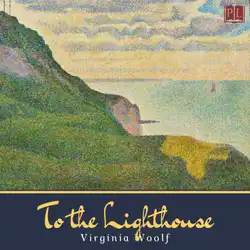
To the Lighthouse
Virginia Woolf
audiobookbook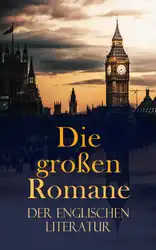
Die großen Romane der englischen Literatur : 50 Klassiker in einem Band
Charles Dickens, Mary Shelley, Jack London, Arthur Conan Doyle, Jane Austen, Emily Brontë, Charlotte Brontë, Anne Brontë, William Makepeace Thackeray, Bram Stoker, Henry Fielding, George Eliot, D. H. Lawrence, Herman Melville, Thomas Wolfe, Virginia Woolf, Joseph Conrad, Sinclair Lewis, Lewis Carrol, Edgar Allan Poe, Edward Bulwer-Lytton, Oscar Wilde, H. G. Wells, Daniel Defoe, James Fenimore Cooper, Lew Wallace, Jonathan Swift, Robert Louis Stevenson, Mark Twain, Walter Scott, Nathaniel Hawthorne, Harriet Beecher Stowe, Laurence Sterne, Frances Hodgson Burnett, Wilkie Collins, Edgar Wallace, John Galsworthy, F. Scott Fitzgerald
book
Queer Classics – 10 Novels Collection : Joseph and His Friend, This Finer Shadow, Regiment of Women, Sappho, The Picture of Dorian Gray…
Oscar Wilde, Radclyffe Hall, Virginia Woolf, Sheridan Le Fanu, Theodore Winthrop, Bayard Taylor, Robert Hichens, Harlan Cozad McIntosh, Henry Blake Fuller, Jack Saul, Lucas Malet
book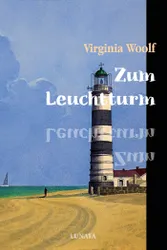
Zum Leuchtturm
Virginia Woolf
book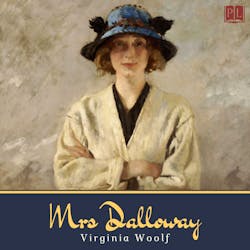
Mrs Dalloway
Virginia Woolf
audiobookbook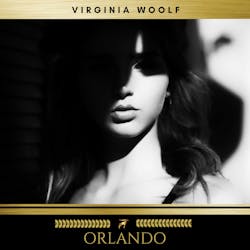
Orlando
Virginia Woolf
audiobookbook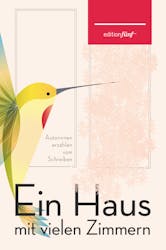
Ein Haus mit vielen Zimmern : Autorinnen erzählen vom Schreiben
Margaret Atwood, Tania Blixen, Janet Frame, Nora Gomringer, Siri Hustvedt, Tove Jansson, Clarice Lispector, Annette Pehnt, Sylvia Plath, Judith Schalansky, Anna Seghers, Ali Smith, Antje Rávic Strubel, Virginia Woolf
book
